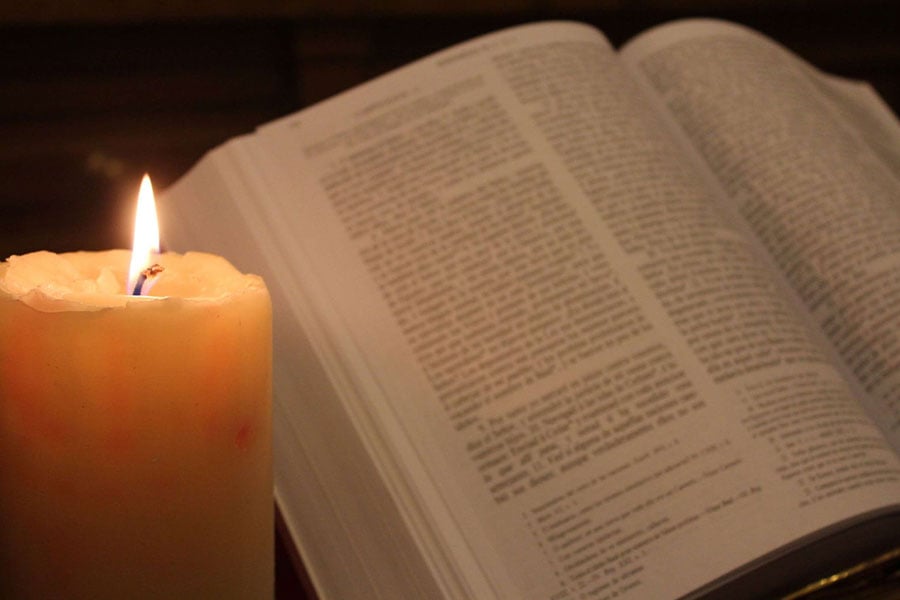Back to Basics: What is Divine Revelation?

As Catholics, we should know God has made us with a definite purpose: to know Him, to love Him, and to serve Him in this life and to be happy with Him forever in heaven. Unfortunately, Catholics have often become confused on the requisite means to such a lofty end. In recent times, we have heard much regarding what is “essential” versus “non-essential,” yet much of this discourse has sadly been limited to the temporal. As important as physical considerations are, a danger resides in not properly considering all requirements of human nature, especially those necessary provisions which enable men and women to fulfill their supernatural calling. In this article, we will concentrate on one: Divine Revelation, the supernatural provision by which we come to know God.
The term “Divine Revelation” is a reference to the Almighty “unveiling” Himself to humanity, sharing His very thought and truth with us. As Hebrews 1:1-2 says, “In times past, God spoke in partial and various ways to our ancestors through the prophets; in these last days, He spoke to us through a Son.” After the Fall, the Lord, slowly and in stages, revealed Himself through the Old Testament (Catechism of the Catholic Church, 54-64). In the fullness of time, however, He revealed Himself fully through the Incarnation of the Eternal Word of God: Jesus Christ (CCC, 65). The significance of this cannot be overstated, for when we speak of the revelation of God, we are primarily referring not to something but to someone (through whom and with whom we are to be united): the Second Divine Person of the Most Blessed Trinity.
In light of this, we must take into consideration two things. First, if Divine Revelation is primarily a reference to a Person, how do we receive this gift? To summarize the Catechism of the Catholic Church (50-100) on this issue, for us to receive this one source of Divine Revelation, it must be handed on to us through a two-fold transmission: Sacred Scripture and Sacred Tradition. Second, as the agent of transmission, Christ’s instituted Magisterium must serve as the one authentic and authoritative interpreter (CCC 85-95). Scripture, Tradition, and Magisterial teaching, therefore, lead us to the intended effect of revelation: knowing God in the virtue of Faith.
Faith is “the theological virtue by which we believe in God and believe all that He has said and revealed to us, and that Holy Church proposes for our belief, because He is truth itself” (CCC 1814). To concentrate upon one aspect of this definition, ask yourself the following: Why do I believe? The answer to this introspective examination is paramount, for it determines the nature of your relationship with the Lord. This may seem stark, but the basis upon which one believes exposes one’s motivations for belief. The gift of “divine faith” is to believe and trust in God because of His veracity and authority as exhibited in Divine Revelation. As Scripture says, “without faith it is impossible to please God” (Hebrews 11:6). The reason for this is because the essence of supernatural faith is trust.
Through His revelation, He establishes trust in our hearts, providing certitude in chaos, light amid darkness, and calm in communion with the Church, wherein we shed sinful individualism and gain a greater exercise of authentic individuality through a properly formed conscience. Without such revelation, we would be lost at sea in the storms of life. Let us hold fast to God’s self-revelation, which is so essential for life, both temporal and eternal.
